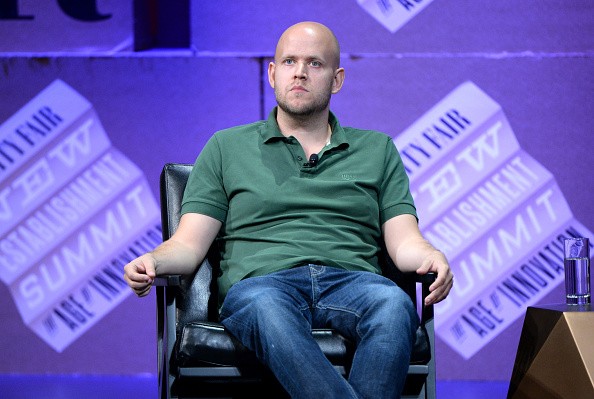This year, a new guy popped up to be the most powerful in the music world, Daniel Ek, the Swedish businessman who co-founded Spotify music streaming service. Ek rises from no. 10 last year to the top of the list and replaces Universal Music Group Chairman and CEO Lucian Grainge who landed at no. 2.
Ek will likely become a household name this year even outside Sweden when he will venture a bigger challenge in turning Spotify into a publicly traded firm that could be $8 billion in worth. The venture will largely depend on whether investors believe he can turn the company he co-founded in Stockholm in 2008 into one with a sustainable profit.
The shaven-headed CEO must prove that Spotify is not just a distribution channel but will not lose the competition with rich competitors, such as Amazon and Apple Inc. The streaming service sells adverts in its free version and makes money from its subscriptions.
The 33-year-old Swede so far managed to overcome business challenges. He is great at negotiating with music labels and ensured that rival Apple does not stop their growth. For its initial public offering, Spotify has a few positive points, including a strong revenue growth, a popular name and over 40 million paid subscribers that is twice as much as Apple's.
Spotify's sales increased nearly 80 percent to $2.03 billion in 2015. They are expected to surge another 50 percent in 2016, according to Bloomberg.
Following Ek and Grainge in the Power ranking are Live Nation's Michael Rapino and Columbia Records' Rob Stringer ranked no. 3 and 5, respectively. Apple Inc.'s Eddy Cue, Jimmy Iovne and Robert Kondrk are in no. 4, according to Billboard.
The trade magazine released the list of the top 100 powerful men and women in the music industry on Feb. 9, Thursday. It has a committee of reporters and editors who determined the rankings based on various factors.
The factors considered in the power rankings include but not limited to consumer behavior impact gauged by impressions in social media, chart performance, television and radio audiences reached, reputation among peers and impact in the industry. The record-label market share is based on data from Nielsen Music for the total and track-equivalent album sales in the United States. For grosses of tour and streaming data, information from Nielsen Music and Billboard Boxscore were used.
Watch Ek being interviewed in the following video:



























